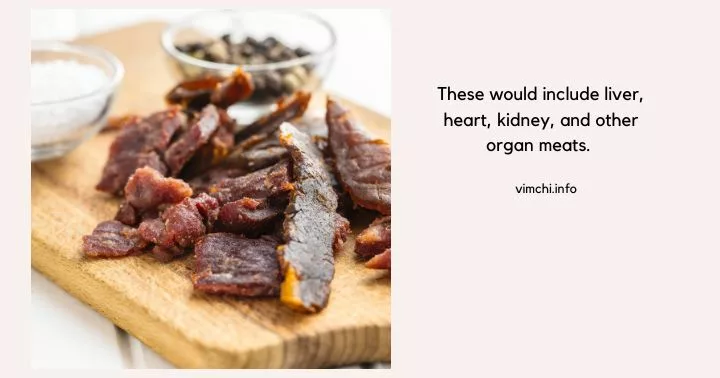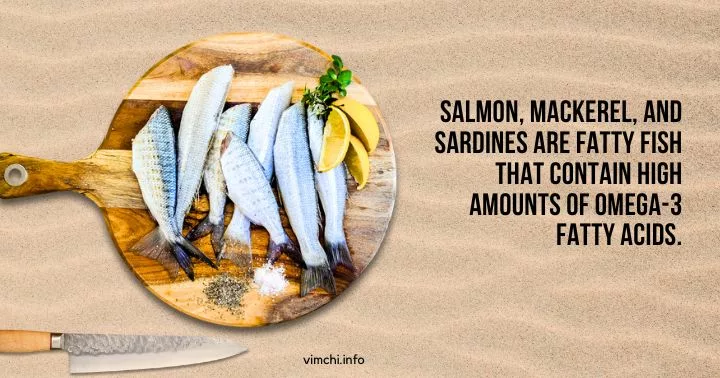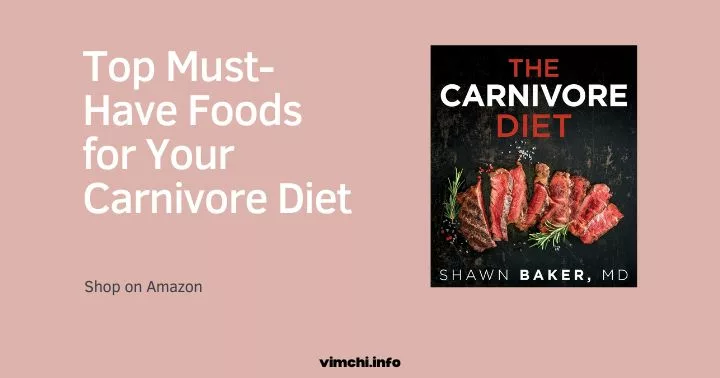The carnivore diet food list consists of mostly meat, fish, and other animal foods. It is a meat-only diet that became popular because of Dr. Shawn Baker when he appeared on the Joe Rogan Experience in 2017.
This book will help you better understand the popularity of the Carnivore Diet. It is a must-read before you start following a meat-only diet.
Most doctors do not recommend it because it is extremely restrictive. They said that it is not for the long term since it is unhealthy.
But a lot of people are supporting it. They said that this diet helped their inflammation, allergies, etc. Some would even consider it a cure for weight gain.
It is worth exploring.
Carnivore Diet Food List – What to Eat?
When you choose to follow this diet, you must learn how to exclusively eat meat, fish, and eggs. You should ensure that you include a variety of nutrient-dense foods. In that way, you are sure to meet your nutritional needs.
1.) Grass-Feed Beef
This is the cornerstone of this diet. Grass-fed beef is high in essential nutrients. These should include protein, iron, zinc, and B vitamins.
Beef contains omega-3 fatty acids, which contribute to heart health.
But make sure to opt for grass-finished beef to maximize the nutritional benefits.
This beef is also high in CLA. It is a type of fatty acid associated with various health benefits. These would include potential anti-cancer properties. It can also improve body composition.
Grass-fed is richer in some vitamins and minerals, like vitamin A, and vitamin E, and the minerals potassium and magnesium. These nutrients are essential for various bodily functions, like immune support and maintaining healthy skin.
Another reason you should choose grass-fed for your carnivore diet is that it has no antibiotics or hormones. It comes from animals raised sans the use of hormones or antibiotics.
The diet of grass-fed cattle consists of natural forage. It allows for a healthier fatty acid profile in the meat. The fats in this beef are less saturated.
They are also more beneficial for heart health compared to the higher saturated fat content than the fats found in grain-fed beef.
2.) Organ Meats

These would include liver, heart, kidney, and other organ meats. They are nutritional powerhouses. They are high in vitamins A, D, E, K, and B-complex vitamins.
Organ meats also provide essential minerals, like iron, zinc, and selenium.
When you include a variety of organ meats in your diet, you are guaranteed to consume a broad spectrum of nutrients.
Also known as offal, organ meat supports brain health. It contains a high amount of omega-3 fatty acids. They are essential for brain health and cognitive function.
The presence of choline in organ meats supports memory and overall brain health.
The high levels of vitamins and minerals in organ meats, like zinc and vitamin A, contribute to a robust immune system. These nutrients play a crucial role in supporting the body’s defense mechanisms against infections and illnesses.
Organ meats like bone marrow are high in nutrients that also support bone health. These would include calcium phosphorus, and collagen.
Collagen, in particular, is essential for joint health and the integrity of connective tissues.
Eating the entire animal including organ meats will align with principles of sustainable and ethical eating.
Organ meats can also enhance nutrient absorption from other foods. The diverse array of nutrients in these meats may complement the nutritional profile of muscle meats. This can lead to a more balanced and complete diet.
3.) Fish and Seafood

Incorporating fish and seafood into this diet can provide a range of nutritional benefits. While a strict carnivore diet primarily emphasizes animal products and excludes plant-based foods, many carnivore dieters choose to include fish and seafood because they are rich in omega-3 fatty acids.
Salmon, mackerel, and sardines are fatty fish that contain high amounts of omega-3 fatty acids. Omega-3s play a vital role in supporting heart health, reducing inflammation, and promoting optimal brain function. Fish can help maintain a balanced ratio of omega-3 to omega-6 fatty acids.
In addition to omega-3 fatty acids, fish and seafood are also high in high-quality protein. They can provide all the necessary amino acids required for various physiological processes. Protein is vital for muscle maintenance, repair, and overall bodily function.
Fish and seafood are also packed with essential nutrients, including vitamins B12, D, and A. They also contain high amounts of iodine, zinc, and iron. These nutrients are vital for immune function, bone health, and overall well-being.
Seafood is also an excellent source of iodine. It is a vital mineral for thyroid function and the production of thyroid hormones that can play a vital role in regulating metabolism.
Another reason to eat fish and seafood is that they provide a diverse array of minerals. Although the minerals are not as abundant as in other animal products, they are still diverse.
Selenium, for instance, is vital for antioxidant defense and thyroid function. It is often found in seafood.
Fish and seafood are low in carbs. Thus, they are suitable if you follow a low-carb or keto version of this diet. It aligns with the overall goal of minimizing carb intake on a carnivore diet.
Incorporating fish and seafood into this diet can add variety in taste and texture. It makes meals more satisfying and enjoyable. It can be particularly important if you want to adhere to this diet over the long term.
4.) Eggs

You should have at least one to two eggs every morning. They are incredibly nutrient-dense. They contain a range of essential nutrients. Rich in high-quality protein, eggs provide the essential amino acids required by the body.
They also contain significant amounts of vitamins such as B12, riboflavin, and folate, as well as minerals like iron, selenium, and phosphorus.
Eggs are said to be a complete protein source because they contain all 9 essential amino acids in the right proportions. It makes them an efficient and easily digestible protein option for muscle maintenance, repair, and overall bodily function.
They are also high in healthy fats. But it is important to note that they also contain some saturated fat. Then again, they are rich in monounsaturated and polyunsaturated fats, including omega-3 fatty acids.
Healthy fats play a role in supporting heart health, brain function, and overall well-being.
Eggs are also an excellent source of choline. It is a nutrient that plays a vital role in various physiological processes, including brain health, liver function, and the formation of cell membranes.
Choline is particularly important during periods of rapid growth and development.
Another reason you should include eggs in your diet is that they are a good source of fat-soluble vitamins, including vitamin A and vitamin D. Vitamin A is essential for vision, immune function, and skin health.
Vitamin D, on the other hand, is vital for calcium absorption and bone health.
Eggs are naturally low in carbs, making them suitable for those following a low-carb or keto version of the carnivore diet. It aligns with the overall goal of minimizing carb intake in this healthy eating plan.
They are also highly versatile and can be prepared in various ways. You can scrab your egg, fry it, poach it, or boil it.
The combination of protein and healthy fats in eggs contributes to a sense of satiety. It can also help you feel more satisfied after meals. It can be beneficial if you wish to adhere to this diet for the long term.
The Carnivore way
Since this diet excludes carbs, it eliminates cookies, cakes, candy, pastries, and similar high-carb foods, you will lose weight.
The foods listed here are high in healthy fats and protein. They are known to satiate your appetite. In that case, you will feel full for a lot longer and avoid overeating.
Starting a Carnivore Diet
Embracing this diet requires careful consideration of nutrient intake to maintain overall health and well-being. Use this carnivore diet food list every time you prepare a meal for yourself and your family.
